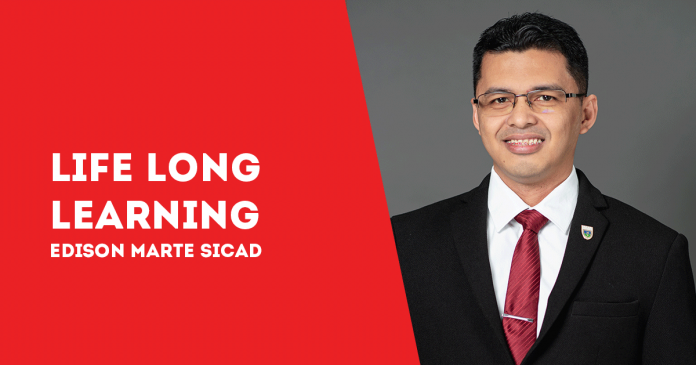
BY EDISON MARTE SICAD
“The same human mind that creates the most beautiful works of art and extraordinary marvels of technology is equally responsible for the perversion of its own perfection.” – Philip G. Zimbardo
FROM THE book of Leo Buscaglia entitled Living, Loving & Learning, I encountered the term the paraphernalia of anti-self. The propensity of man to subject himself in destructive habits is a mystery to man himself.
Do we intentionally harm our very own selves?
I borrowed the term creative evil from the research entitled The Psychology of Power and Evil: All Power to the Person? To the Situation? To the System? written by Philip G. Zimbardo.
Is evil an effect of the environment? Is it institutionalized? To what extent should a person be accountable for the consequences of his actions?
Insights
1. The older I become, the more mistakes I make. But it doesn’t follow that I also learned from each mistake. Eventually, for learning to happen, some mistakes have to happen again — in varying degrees — to awaken my dormancy and strengthen my will to change for the better.
The rite of passage is the purging of impurities. Sort of separating the chaff form the wheat. When I become intently emotional and strong-willed, I get to kill my old self. We can destroy our old self. We can be born anew.
2. There is a self-imposed limit that I have unconsciously lived by. For example, I got accustomed to writing one article a week. After a year, my brain functioned with such limit. The repetition became my belief: that I can only write one article a week. Then I challenged my own ability when I became aware that such productivity became a habit of mediocrity.
It is somehow true that we can do more and continually improve.
There is such a thing — or person — as creative good. For the past weeks, life gave me thought-provoking experiences that made me question everything.
The realization that we can reset ourselves and change — for better or worse — anytime makes me excited. Such an opportunity gives me hope. It leads me to new ideas.
3. Taking action, no matter how small or insignificant at first, can lead to new discoveries that can produce marvelous results. As the cliché goes, Trust the process.
Confidence does not immediately mean mastery. It is the attitude that we don’t get insecure or depressed if we can’t immediately “get it.” Learning is a lifelong process. A process is not a perfect execution of all the parts in achieving the whole.
People as ashes in urns.
Eventually, everything will fade. Inasmuch that others become nihilistic about existence, I get inspired by the end into nothingness. The living of life and the leaving by death sum it all up.
Creative evil also invites creative good. It is but a matter of Gestalt perspective. We see not only by eyes but by insights. The vision is seen as a declaration of owning the future.
Imagine this: your ashes in an urn. That’s all there is of you — to a certain extent. To rest is to feel the respite. In a sense, there is no rest in death, for you won’t be able to feel it.
The anti-self is nothing but a stage towards self-fulfillment. However, not all who have started the process will arrive towards improvement.
Not all who have begun can finish. And not all who have died were able to live./PN




